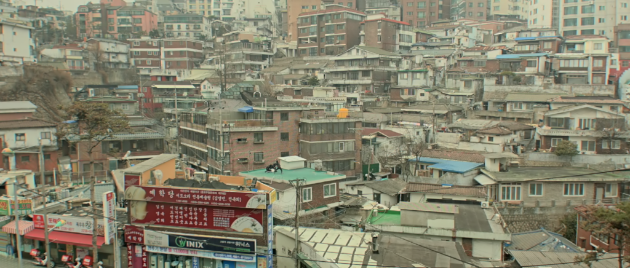
A hilly, labyrinthine shanty town in Seoul is perhaps the biggest star in Alone, a thoroughly intriguing Hitchicockian mystery by Park Hong-min. It starts out with a POV shot of our photographer protagonist Su-min (Lee Ju-won) on all fours scrubbing the blood splatter on the linoleum floor of his photo studio. Then we cut to him witnessing a woman bludgeoned by masked men from a faraway rooftop through his camera. The men notice him taking pictures, give him a chase and catch him. Then right before they kill him with a hammer, we cut to the next scene, where now naked Su-min wakes up at night in the same neighborhood. So begins his descent into a purgatory filled with suppressed childhood memories and guilt and shame of a ne'er do well artist.
Comprised with mostly a handful of long handheld sequences, Alone is an amazing feat from a technical standpoint. But its thin narrative stretches out a little too long. But its Escher like intricate narrow staircases and alleyways are a site to behold as they reflect the mind-scape of our protagonist perfectly. It's a great intriguing puzzle piece by the first time director Park.
Hamog (Haze) - Jover
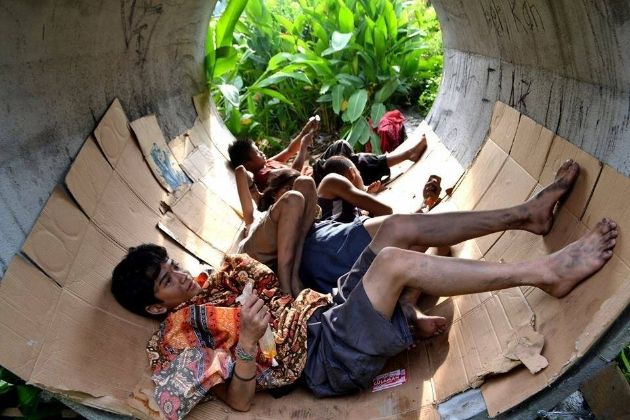
Filipino writer/director Ralston Jover's Hamog (Haze) starts with 4 street urchins of Manila slowly waking up in a discarded giant concrete pipe near the filthy river. The little one keeps insisting that they go swimming. And you instinctively go, oh god, not another third world poverty porn. But what's great about Jover's gritty film besides stellar acting by its little protagonists, is its unpredictability.
The kids subsist their living on stealing from drivers who are stuck in monstrous city traffic by distracting them as a team. After one such job, Jinky (Teri Malvar), the only girl in the group, gets taken by the angry taxi driver. Then another job cost them the life of Mo, the youngest. It's Rashid (Zaijian Jaranilla) who takes on the responsibilities of giving a proper burial to his friend. In the mean time, Jinky is pushed into a domestic servitude for the taxi driver and his always squabbling wife. But he has other ideas for Jinky to do. Jover concentrates on the strength and the resilience of these kids instead of depravity and ugliness of the streets. Shifting point of view affords Malvar and Jaranilla to shine in their respective roles. It’s a film with a huge heart that takes viewer to unexpected places. A great little film.
The Tenants Downstairs - Tsuei
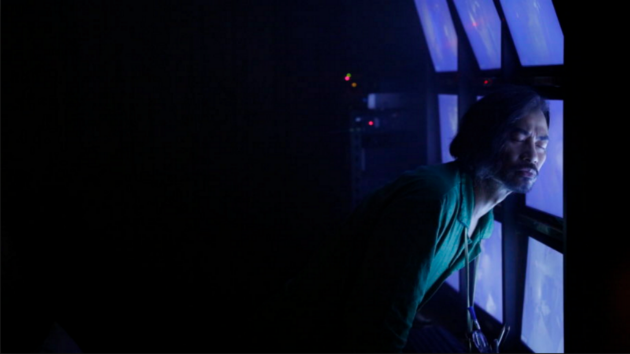
This sleek, black comedy, based on a book by Taiwanese celeb writer Giddens Ko (You are the Apple of My Eye, Cafe. Waiting. Love) about a passive peeping tom, quickly devolves into a mayhem- murder, incest, sodomy, cannibalism, etc. Hong Kong superstar Simon Yam, speaking Mandarin here, plays a landlord of an apartment complex occupied by- a divorcé with a young daughter, a haughty office worker, a P.E. teacher who loves her, a gay couple and an online gamer.
At first, it is business as usual, through hidden cameras in each apartment, the landlord monitors comings and goings of the each occupant with occasional sexual gratifications, but always from a distance. Everything changes when a comely mysterious new tenant, Yingru (Shao Yu-wei) moves in. With big bulky suit cases adorning the living room seemingly unpacked, Yingru's calm demeanor lures our landlord in to her apartment to snoop, only to discover her American Psycho style habits (complete with a clear plastic raincoat).
They develop an unspoken understanding after she suggests him to set himself and others free from daily routine of ordinary life. So the landlord starts actively messing with the tenants' lives. Pitting them against each other in the most sinister, vile ways, he relishes in his god-like power.
The Tenants Downstairs is depraved, dark comedy that questions the true human nature. Tsai Ming-Liang's regular Lee Kang-sheng also stars as an older gay tenant whose love life becomes a little more complicated by Yam's character's shenanigans.
What’s in the Darkness - Wang
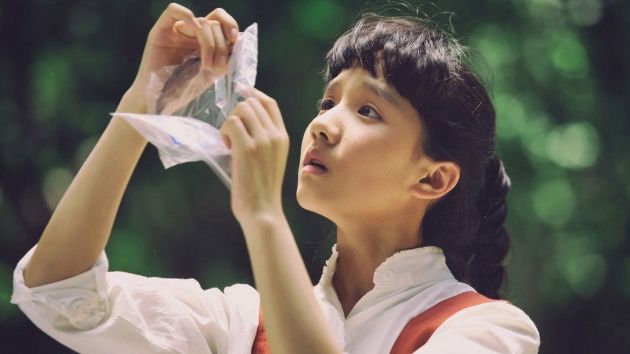
The film is an interesting melding of a serial killer genre and a coming-of-age story set in the early 90s rural China. Su Xiaotong shines as Jingjing, a curious Middle Schooler on the cusp of puberty. While her college-educated, but ineffectual police officer father grapples with unsolved murders of women (possibly by a serial killer, marking his victims with a cross sign on their upper thighs) in their small town, Jingjing slowly learns about opposite sex and how to behave in a society that is still steeped in old ways. It's the 90s China which is still a very conservative, authoritarian society where the country's one-child policy is bearing a new generation of bratty, insolent children.
With this complex backdrop, What's in the Darkness gives up being a police procedural in the middle since the police has no clue on what's going on. Instead the film concentrates on Jingjing's life, as she juggles the school, working at an old folks home, attentions from boys and her clueless parents. Bong Joonho’s Memories of Murder comparison is unavoidable and it’s a hard film to measure up to. But except for some technical issues and pacing, the film is a commendable fine first feature by first time director Wang Yichun.
Ten Years - Au, Ng, Chow, Kwok, Wong
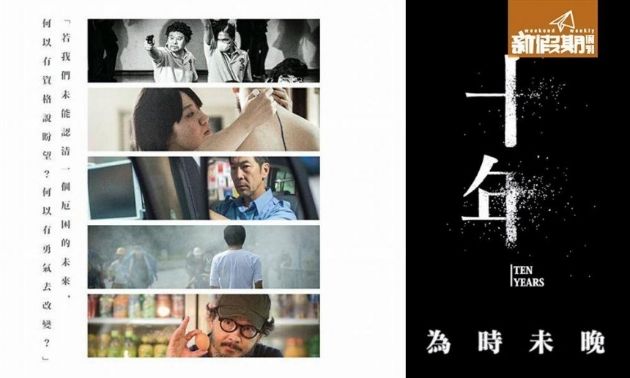
It's hard to believe the handover of Hong Kong from 150 years of British rule back to communist China took place almost 20 years ago, in 1997. As one of Asia's biggest economic powerhouses, the peaceful handover of HK signaled the beginning of China's rise to the global economic superpower status. So what happened to 7 million Cantonese speaking Hong Kongers? After the initial jitters, the things have been relatively quiet. So the West largely ignored and have forgotten the fact that it was as much a cultural annexation as a political, economic one.
Reflecting the uneasy mood of many inhabitants of HK after massive sit-in demonstrations against Beijing's restrictive electoral reform in 2014, known as Umbrella Revolution- a non-violent, pro-democracy protests, 5 filmmakers envision what if scenarios in varying degrees of plausibility in 2025 Hong Kong, where ethnic minorities are used as a pawn for the political gain, housing shortage pushing people into self-sacrificing artifacts, speaking Cantonese is discouraged or worse, self-immolation is contemplated and acted upon as a political statement and children starting to spying on adults.
Ten Years is a contemplative, sobering reflection of what Hong Kongers are feeling now. No wonder it beat out Star Wars: Force Awakens at the HK box office last year and is banned in China.
No comments:
Post a Comment